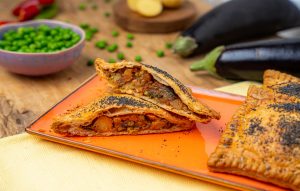
Why is it that the foods we love to indulge in: chocolate, cakes and sweets are usually so bad for us?! How amazing would it be to enjoy sweet-treats that contain none of the nasty ingredients or have none of the negative health consequences attached to them?! If only we lived in a world where we could enjoy such delights without the worry or guilt! Well…we do…and we can!
Arapina has been on a mission since 2013 to create free from and low in products, healthy sweets and pastries as an alternative choice to the sugar-filled and artificially sweetened produce commonly found in most bakeries and patisseries. Our spirit ‘Full of the joys of life’ has put at the forefront the development of a menu that can satisfy any craving without compromising our health.
In our effort to learn more about the ingredients we use and following great demand from our customers, we conducted the following research on sugars. We reviewed ten types of sugars and sweeteners listed below, from the most harmful to the most beneficial. Our focus: keeping our blood-sugar levels in check – a practice which keep us healthy, with balanced energy levels and help us maintain our ideal weight.
So here is what we found…
Aspartame, also known as E951, is an artificial sweetener that is highly controversial to say the least. It is often found in low-sugar products like diet sodas, diet yoghurts, and sugar-free sweets.
If you do some research into aspartame, you’ll find many studies claiming that it is perfectly healthy, while others claim that it’s the most toxic and poisonous carcinogen and neuro-toxin in our food supply and is linked with a myriad of negative symptoms, illnesses and diseases.
Of course we each need to draw our own conclusions, however, the million dollar question is: who funded the study? It’s interesting to note that those who claim that aspartame is poisonous and toxic are always independent researchers and natural health practitioners (Dr. Mercola and Dr. Blaylock to name a couple), as opposed to food and beverage giants like Coca-Cola that they will usually support the use of aspartame.
If you’re still unsure – here is an experiment you can do at home: leave a few drops of a sugary drink next to a few drops of a diet drink that contains aspartame on a summer’s day, and you’ll notice ants swarming to the first one, while ignoring the second. Ask your self why? We say: nature knows best! Our conclusion and advice: avoid aspartame altogether.
Granulated Sugar or white sugar is the most commonly used form of sugar. Most of us know that excess sugar in our diets is not a good idea and this is why, in Arapina, all our recipes are at least low in, if not completely free from granulated sugar. Although we have found it to be a step up from aspartame, research warns of its many detrimental effects on the human body including health diseases such as obesity and diabetes.
Sugar in its purest organic, raw sugar cane form has some nutritional benefits in the form of naturally occurring vitamins, minerals and anti-oxidants, however, white table sugar is highly processed and stripped of any nutrients. It is also high in pesticides and other chemicals, such as lime, sulphur dioxide and phosphoric acid.
This is why we believe that common, white table-sugar is best avoided. If you do enjoy sugar, do so only once in a while as a treat.
Brown Sugar is a slightly better substitute for granulated/white sugar, however brown sugar is essentially white sugar mixed with molasses, offering the light brown colour that we all know. Molasses is a good source of dietary potassium and provide small amounts of calcium, magnesium and B vitamins. However, don’t fool yourself; the amount of these nutrients that you’d be getting from brown sugar is unfortunately very small and will not meet your daily nutritional needs.
Demerara: Unlike brown sugar, demerara is a type of raw sugar originating from Guyana, and recently produced in Mexico, India, and Hawaii, due to its high demand. Demerara is also light brown in colour and produced from the first crystallization during the processing of cane juice into sugar crystals.
Although demerara sugar has a deeper taste and complexity than standard sugar, with a higher mineral content that is saved during the refining process, it is still far from being a health food and should be only used sparingly if you wish to maintain good health.
Muscovado is another type of brown sugar, which varies from partially refined to completely unrefined brown sugar with a strong molasses content and flavour. The term muscovado sugar can be essentially used to describe any dark, molasses-rich sugar as there is no legal definition or Protected Designation of Origin (PDO). However for those who bake, muscovado has a very distinct flavour and aroma and is best used for ‘winter’ baking, complements combinations such as apple and cinnamon and shares the similar nutritional values like any other brown sugar (please see above).
Whole Organic Cane Sugar is unrefined sugar minus the cancer-causing and environmentally damaging pesticides, found in conventionally grown sugarcane.
Compared to white sugar, organic cane sugar has the full-bodied taste of sugarcane and is a lot less processed, retaining many of the nutrients present in cane juice; more specifically, organic cane sugar contains 17 amino acids, 11 minerals, and 6 vitamins, including antioxidants that may help reverse oxidative damage. As opposed to table sugar which is only sucrose with added chemicals (see above), organic cane sugar is made up of sucrose, fructose and glucose and should not be confused with brown or demerara sugar; unlike the other two the light brown colour of organic cane sugar is a sign that it is a less processed ingredient, hence a step higher in our ranking and baking preferences!
Agave Syrup: Agave syrup is touted as a health food and is currently in high demand due to its lower glycaemic index (GI). Let’s clarify though what does a lower GI food or ingredient mean? Eating a carbohydrate or sugar with a lower GI essentially means that we avoid a short-term, rapid elevation of our blood-sugar levels or hyperglycaemia – which can manifest as jitteriness, hyperactivity or feeling ‘wired’. Such blood-sugar ‘spikes’ are normally followed by what we all recognise as a sugar ‘crash’, with feelings of fatigue, tiredness and lethargy.
However agave’s low GI offers only a partial solution to the problem; this sugar substitute is high in concentration of fructose which, when consumed in high amounts, can lead to insulin-resistance, a condition where the body can’t effectively use the hormone insulin. The condition, if left unchecked, can ultimately lead to diabetes, exactly like any other of the above sugars.In order to put the records straight, it is important to underline that although agave is claimed as a health food, it is not, and is best consumed in moderation.
Coconut Sugar is made in a natural 2-step process. Firstly, a cut is made on the flower of the coconut palm and the liquid sap is collected into containers. Secondly the sap is placed under heat until most of the water has evaporated.
According to the Philippine Department of Agriculture, coconut sugar contains several nutrients including the minerals Iron, Zinc, Calcium and Potassium, as well as some short chain fatty acids, polyphenols and antioxidants that may also provide some health benefits. That said – you’d have to eat tons of it to derive a meaningful amount of these nutrients. It also contains a fibre called inulin, which may slow glucose absorption and explain why coconut sugar has a lower glycaemic index than regular table sugar. Its main component however is fructose, which as outlined before is not the best in the world of sugars!
Fructose exists naturally within fruit and is often known as fruit sugar. Eaten in its natural form, in moderation and alongside the nutrients and fibre that occur in fruits, is fine for most people. However, modern, western living provides us with year-round access to an abundance of international fruit varieties and this poses a problem to our health. This is due to the fact that a large percentage of humans live in climatic countries whose genetic heritage would have only ever seen a few fruits throughout the year. Unfortunately our evolutionary biological makeup simply cannot handle such a large amount of fruit, and research points towards this as a contributing factor to insulin resistance, metabolic syndrome and diabetes.
As a health-conscious consumer, it is also wise to be aware of corn syrup; corn syrup is a very high in fructose artificial food product that contains chemical contaminants, such as mercury, and is almost always genetically modified. For this reason we would advise our customers to read the labels carefully before purchase and avoid products that contain corn syrup as much as possible.
Raw Honey in its natural, purest form has antimicrobial, antibacterial and anti-oxidant benefits. Due to our evolutionary development, honey is a food that would have been consumed in small amounts during the summer. Therefore, it is more beneficial to our health, if this is consumed on an infrequent basis to reflect our biological development. It is best consumed uncooked, to keep the naturally occurring enzymes intact. Look out for products that are sold with a piece of honey comb and consume honey as well as the actual honey comb, if possible.
Xylitol, which is also used in the medicinal world, is a sugar alcohol naturally found in plants. Due to the fact that it also helps reduce the risk of tooth decay associated with more commonly used sugars, xylitol is often found in chewing gums and of course scores highly in our ranking. Its major benefit is that it will not elevate your blood-sugar drastically, and offers certain health benefits such as increased absorption of B vitamins and calcium.
However one should be mindful of xylitol’s origin; while it is a fact that xylitol derives from the xylan of birch trees, xylan can also be found in corn cobs, a genetically modified source of food. Unfortunately for profit reasons, modern manufacturers prefer xylan from corn cobs, as opposed to the one from the birch trees.
We would thus strongly advise our food conscious customers that, unless the label of a product containing xylitol lists it as being from birch, beets or some other non GMO source, your average corn-derived xylitol is very likely to be from a genetically modified corn, hence it should be avoided.
Stevia: Unlike sugar and chemical-filled artificial sweeteners such as aspartame, stevia is a completely natural, plant-based sweetener. Stevia also contains minerals, volatile oils, and vitamins, which give the sweet herb its nutritional and medicinal properties. In several studies stevia has also been shown to lower blood pressure and help manage diabetes by assisting in the balancing of blood- sugar levels. It also contains antioxidants, is sweeter than sugar, which means a lesser amount is ample, and in spite of its sweetness, it’s virtually calorie free! It is important to underline that a pure stevia leaf extract should be the preferred route to sweeten your treats, just like we do in Arapina (a lot of stevia products, sold on the high street contain bulking agents; another trick of the big manufacturers to increase profit margins).
For your consideration, please see below a quick diagram that describes at a glance how we have ranked our 10 sugars from the worst one (left hand side) to the best one (right hand side).
In Arapina* we strive to offer quality products that feed the body and soul of our customers. We spend days on product development in order to achieve the exceptional taste and texture of our free from and low in baked goods. If you would like to discover for yourself how good our products are, then why not try our sugar free chocolate almonds and cakes available on our website, at Amazon and Greenwich market:
- https://www.amazon.co.uk/Sugar-Free-Milk-Chocolate-Almonds/dp/B01EVAXPKG/ref=lp_10090023031_1_5?srs=10090023031&ie=UTF8&qid=1464194377&sr=8-5
- http://www.greenwichmarketlondon.com/food-and-drink/detail/arapina
*Arapina uses exclusively Stevia Leaf Extract, the highest quality of Stevia products.
Hannah Stupar

In collaboration with our Nutritional Advisor Tom Charman of thenaturalhealthcoach.uk









